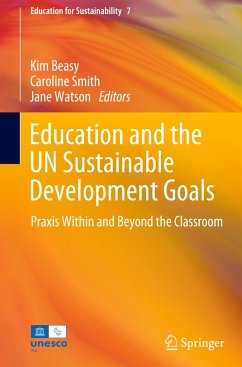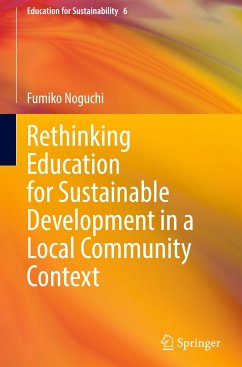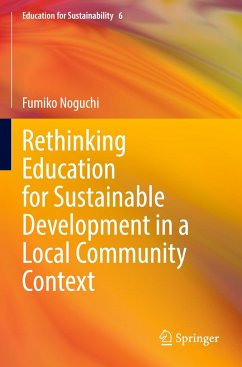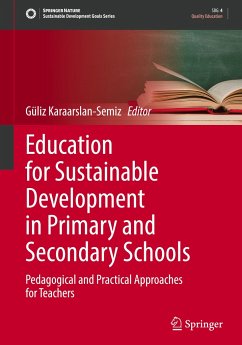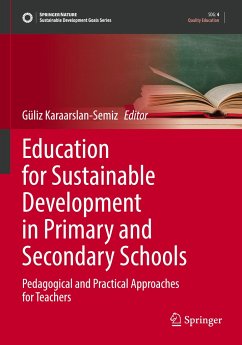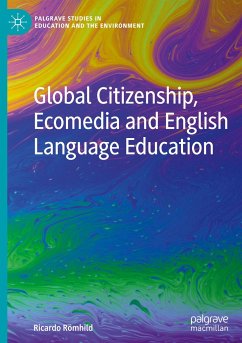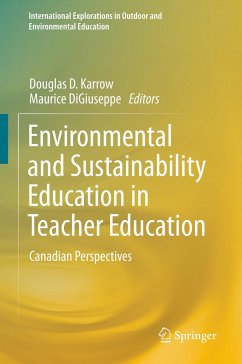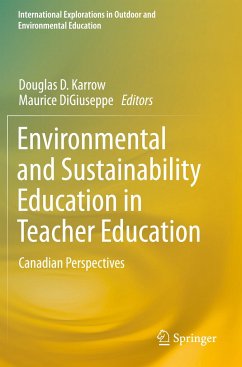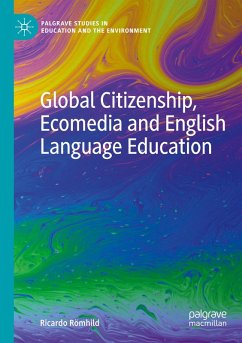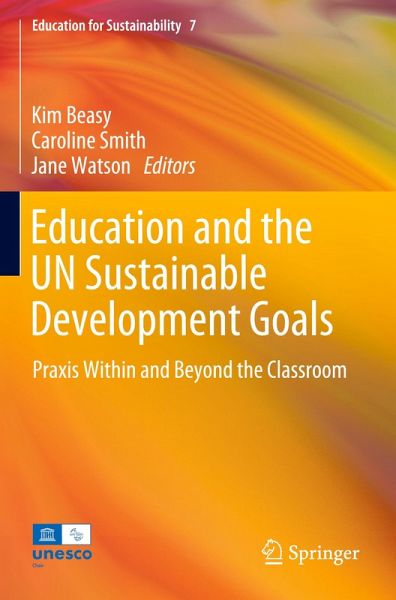
Education and the UN Sustainable Development Goals
Praxis Within and Beyond the Classroom
Herausgegeben: Beasy, Kim; Smith, Caroline; Watson, Jane
Versandkostenfrei!
Versandfertig in 6-10 Tagen
130,99 €
inkl. MwSt.

PAYBACK Punkte
65 °P sammeln!
This book focuses on the complex relationship between education and the Sustainable Development Goals (SDGs) and highlights how important context is for both critiquing and achieving the Goals though education, given the critical role teachers, schools and curriculum play in young people's lives. Readers will find examples of thinking and practice across the spectrum of education and training sectors, both formal and informal. The book adds to the increasing body of literature that recognises that education is, and must be, in its praxis, at the heart of all the SDGs. As we enter the third dec...
This book focuses on the complex relationship between education and the Sustainable Development Goals (SDGs) and highlights how important context is for both critiquing and achieving the Goals though education, given the critical role teachers, schools and curriculum play in young people's lives. Readers will find examples of thinking and practice across the spectrum of education and training sectors, both formal and informal. The book adds to the increasing body of literature that recognises that education is, and must be, in its praxis, at the heart of all the SDGs. As we enter the third decade of the 21st century, we have a clear understanding of the wicked and complex crises regarding the health of life on our planet, and we cannot ignore the high levels of anxiety our young people are experiencing about their future. Continuing in the direction of unsustainable exploitation of people and nature is no longer an option if life is to have a flourishing future.
The book illustrates how SDGs are supported in and by education and training, showcasing the conditions necessary to ensure SDGs are fore fronted in policy reform. It includes real-world examples of SDGs in education and training contexts, as well as novel critiques of the SDGs in regard to their privileging of anthropocentrism and neoliberalism.
This book is beneficial to academics, researchers, post graduate and tertiary students from all fields relating to education and training. It is also of interest to policy developers from across disciplines and government agencies who are interested in how the SDGs relate to education.
The book illustrates how SDGs are supported in and by education and training, showcasing the conditions necessary to ensure SDGs are fore fronted in policy reform. It includes real-world examples of SDGs in education and training contexts, as well as novel critiques of the SDGs in regard to their privileging of anthropocentrism and neoliberalism.
This book is beneficial to academics, researchers, post graduate and tertiary students from all fields relating to education and training. It is also of interest to policy developers from across disciplines and government agencies who are interested in how the SDGs relate to education.



